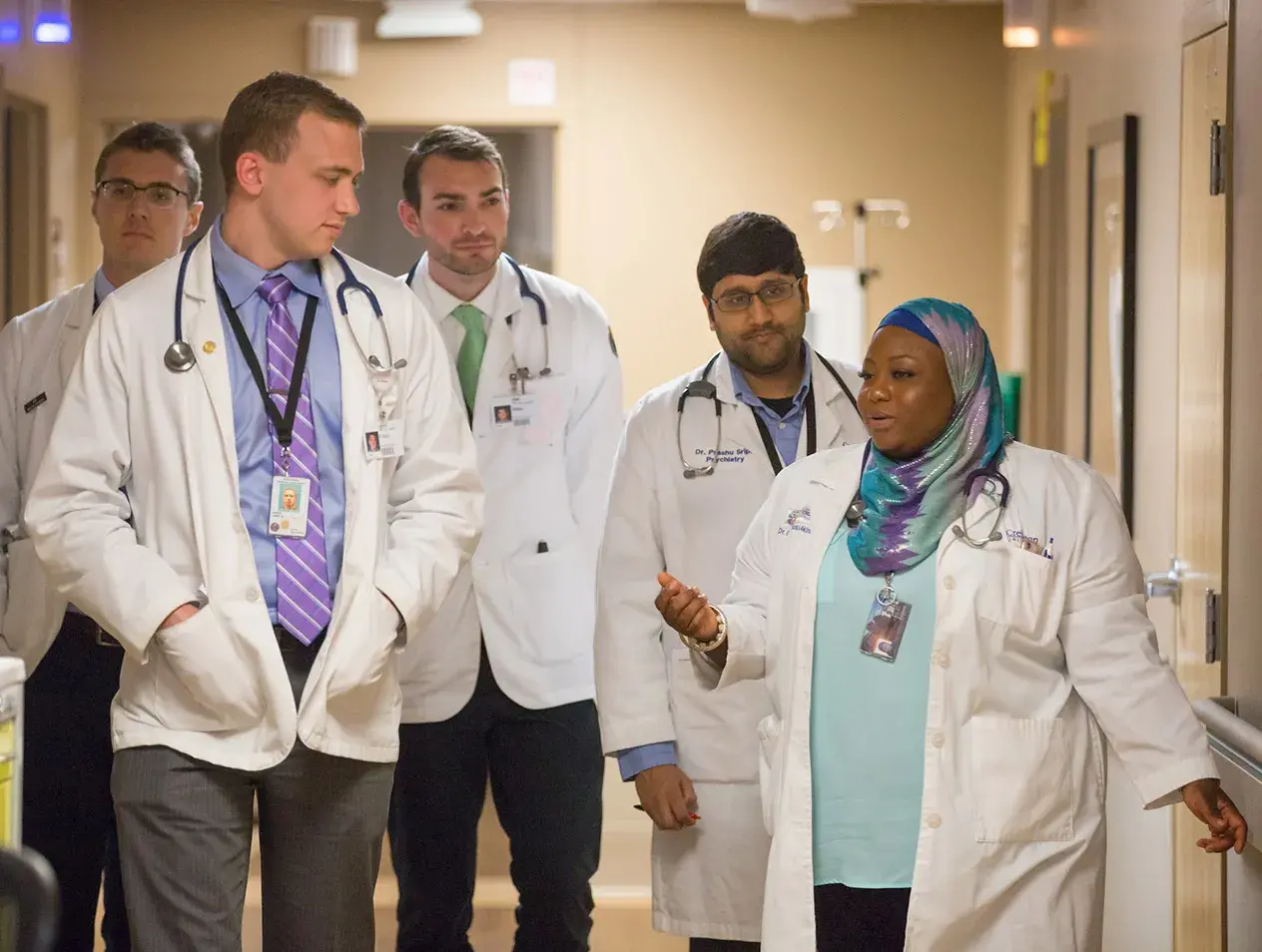
Pre-Medical Facts Sheet
Becoming a Competitive Applicant to Medical School
Competitive applicants for admission to medical school have Bachelor's degrees, a solid academic record with mostly A/B+ grades, a well-rounded profile of co-curricular experiences, strong MCAT scores, supportive letters of recommendation, and can clearly articulate their reasons for choosing medicine.
Pre-medicine is not a major; it is a pre-professional path successfully followed by students regardless of major. In choosing a major the rule is to follow your own interests. Ideally, your major will support an alternate career. Intellectual engagement in whatever major you choose is of greatest importance to medical school admissions committees. Essential science background can be gained—and the ability to learn additional information later in medical school and beyond—an be demonstrated whatever your undergraduate major.
GPAs calculated on medical school applications normally include coursework done at all colleges attended. If a course is repeated, both grades will be included in the GPAs calculated by the medical schools. Aim for GPAs of 3.5 or higher.
C is an honorable grade, though most if not all grades should be higher! Grades below B, especially within the two academic years leading up to medical school application, could interfere with admission to medical schools. Faced with a likely grade below C, some students should withdraw (W) and later try for a higher grade; consult with your advisors as you decide. More than two Ws, however, could indicate a lack of judgement or an inability to handle challenges in medical school.
- General Biology I and II with lab– 8 semester hours (BIO 201/205 and 202/206)
- General Chemistry I and II with lab – 8 semester hours (CHM 203-206; CHM 285/286 can substitute for CHM 205/206)
- Organic Chemistry I and II with lab – 8 semester hours (CHM 321-324)
- General Physics I and II with lab – 8 semester hours (see below for information about the different options with physics)
- Biochemistry – 3 semester hours (CHM 371 for non-chemistry majors, CHM 381 for those with any major track through the chemistry dept.) – note: Organic Chem II is a prerequisite.
- Physiology – 3 semester hours of BIO 449, EXS 320, or equivalent; the course must have general biology as a prerequisite.
- Statistics or a course that develops statistics competency; applied statistics is very important for the MCAT. A statistics course is required by several medical schools including Creighton’s; many departments offer statistics and any could suffice.
- Psychology – 3 semester hours (PSY 201)
- Introductory Sociology or Anthropology – 3 semester hours (SOC 101, ANT 111, 112, or 113)
- English – 6 semester hours (including at least one course with significant composition/writing)
- Cellular Biology (BIO 362) – lots on MCAT. A few medical schools require but many recommend. Consider taking sophomore year. Prerequisite for taking BIO 449.
- Genetics (BIO 317) – required by a few med schools including UNMC; likely of increasing importance on MCAT. If possible, consider taking before senior year.
- Developmental biology, anatomy, evolution, immunology, molecular biology, microbiology, and neurobiology are some examples of additional subjects relevant to medicine; each student should choose appropriate courses in consultation with pre-health advisors and/or major advisors.
Pre-Health Guides and Resources
PRE-HEALTH ADVISING: Pre-Health Advisors are available to meet with students one-on-one about their pre-health goals and path.
PRE-HEALTH SEMINARS: The seminars assist students in exploring the medical profession, gaining experience in healthcare, and preparing for the application process. Students should participate in PHLC 200 in their sophomore year, and then PMED 300 in either the junior or senior year (depending upon the student’s application timeline).
PRE-HEALTH LISTSERV: Ask how to signup!
PRE-MEDICAL SOCIETY: All pre-medicine students should participate in the Pre-Medical Society. This student-run organization provides leadership opportunities to further explore and gain experience in the medical profession.
CU SCHOOL OF MEDICINE: Make an appointment with medical admissions office personnel in the spring of the junior year to personalize the application process.
HELPFUL LINKS:
- creighton.edu/student-success - Student Success
- creighton.edu/medicine – CU School of Medicine
- aamc.org – Association of American Medical Colleges
- aacom.org – American Association of Colleges of Osteopathic Medicine
- amsa.org – American Medical Student Association
Contact Us
Center for Advising Resources and Support
2500 California Plaza
Omaha, NE 68178
Hixson-Lied Science Building, first floor


